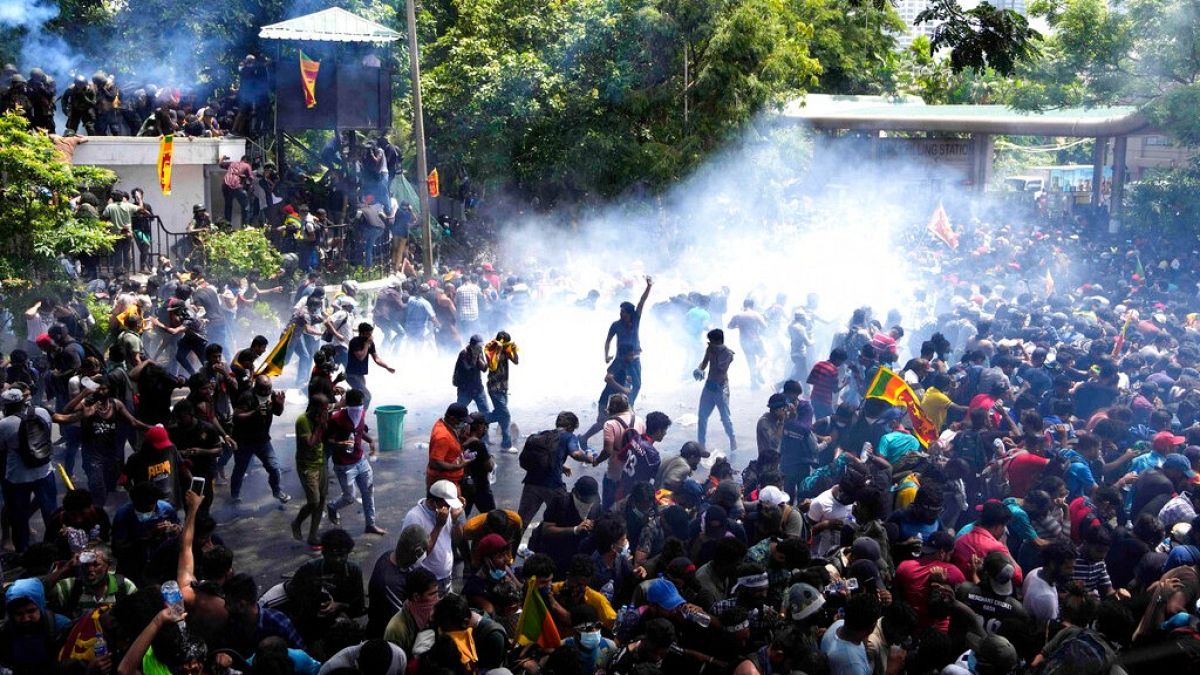President Gotabaya Rajapaksa fled to the Maldives on Wednesday, hours before he was supposed to resign, leaving the prime minister as acting president. The island nation is battling severe shortages of food and fuel, with many blaming Rajapaksa for the economic crisis.
Sri Lankans woke up to confusion on Thursday, still waiting for their embattled president to resign after he fled the country.
President Gotabaya Rajapaksa and his wife fled to the Maldives on Wednesday aboard an air force jet. In his absence he made the prime minister, Ranil Wickremesinghe, acting president — a move that further roiled passions among a public that blames Rajapaksa for an economic crisis that has caused severe shortages of food and fuel.
Rajapaksa had promised to resign by Wednesday night, and since Sri Lankan presidents are protected from arrest while in power it’s likely he planned his escape while he still had constitutional immunity and access to a military jet.
It was unclear exactly where he was in the Maldives, an archipelago of hundreds of islands famed for luxury tourist resorts, or where he planned to travel next.
On Wednesday, protesters, undeterred by multiple rounds of tear gas, scaled the walls to enter the office of Prime Minister Wickremesinghe as the crowd outside cheered in support and tossed water bottles to them.
Late on Wednesday night, crowds also gathered outside the Parliament. Demonstrators clashed with security officers who fired tear gas into the air.
Wickremesinghe's office declared a nationwide curfew and imposed a state of emergency giving broader powers to the military and police. The curfew was lifted early Thursday.
Over the weekend, the two leaders both said they would resign after protesters stormed Rajapaksa's and Wickremesinghe's official residences in a dramatic escalation of months of protests.
The protesters blame Rajapaksa and his powerful, dynastic family for leading the country into an economic abyss, but they are also furious with Wickremesinghe, whom they accuse of protecting the president.
“We need both ... to go home,” said Supun Eranga, a 28-year-old civil servant in the crowd on Wednesday. “Ranil couldn’t deliver what he promised during his two months, so he should quit. All Ranil did was try to protect the Rajapaksas.”
But Wickremesinghe has said he will not leave until a new government is in place.
It's unclear when that might happen since the opposition is deeply fractured. But assuming that Rajapaksa resigns as planned, Sri Lankan lawmakers have agreed to elect a new president on 20 July who will serve the remainder of Rajapaksa’s term, which ends in 2024.
The political impasse threatens to worsen the bankrupt nation’s economic collapse since the absence of an alternative government could delay a hoped-for bailout from the International Monetary Fund.
In the meantime, the country is relying on aid from neighbouring India and from China.


